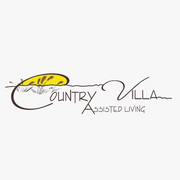A Guide to Understanding Drug Interactions for Senior Living

As people age, understanding and managing medication interactions becomes increasingly important. For seniors who are looking to move into an assisted living facility, it's especially important to be aware of this issue. Many communities have healthcare professionals on hand to help residents navigate the complexities of tracking medications, which can be a big help, but it’s also important for retirees and their caregivers to understand the basics. Here is what you need to know.
What Is a Drug Interaction?
Drug interactions occur when two or more medications interact with one another in the body, causing unintended side effects. This can include increased or decreased effectiveness of either medication, and it may even lead to dangerous complications.
The most common type of drug interaction is a pharmacokinetic reaction, which occurs when one drug changes the way another is metabolized by the body. This could include anything from increased or decreased absorption, altered metabolism, or diminishing potency of either drug.
What Are Some Medications to Be Aware of?

Most prescribed drugs carry a risk of unintended interactions, and older Americans are more likely to be taking multiple medications due to their increased health needs. In order to remain safe, it’s important for seniors and their caregivers to be aware of the following types of drugs:
- Blood thinners, like warfarin or heparin
- Pain relievers, like ibuprofen or acetaminophen
- Anti-anxiety and depression medications
- Diabetes drugs
- Antibiotics
- Heart medications and more
How Can You Prevent Drug Interaction Risks?
When taking multiple medications, it’s important to be aware of the potential interactions that may occur. Talk to your doctor or healthcare provider about any medication you’re taking and ask them questions about the potential risks. If you’re moving into an assisted living community, make sure to disclose all medicine you’re taking so they can help ensure that there are no conflicts between them.
Additionally, if you’re taking any over-the-counter drugs or supplements, make sure to inform your doctor so they can keep track of potential interactions. It can be helpful to keep a list of all medications that you’re taking and bring it with you to each doctor’s appointment, so you remember each one.
For the best care for your loved one, look no further than Country Villa Assisted Living. With locations in Omro, Freedom, Pulaski, and Little Chute, WI, their caring and attentive staff is there to help. These facilities have clean, comfortable, homelike accommodations with well-appointed rooms, private bathrooms, individual climate controls. Call (920) 422-4620 to schedule a tour, and visit their website for more information on their offerings.
About the Business
Have a question? Ask the experts!
Send your question

